Nine official adaptations, three moving romances, two historical dramas, and one horrifying storybook are among some of the films on HuffPost Entertainment’s list of 2014’s best movies. In a year where 17 of the 20 highest-grossing films hail from franchises or adaptations, we’ve filtered out the noise to determine the best the cineplex had to offer. And there was a lot. Our list doesn’t include “Into the Woods,” “Under the Skin,” “Only Lovers Left Alive,” “Snowpiercer,” “Godzilla,” “The LEGO Movie,” “Starred Up,” “Ida,” “The Imitation Game” or “Neighbors” — but it easily could have. Which means there’s more than enough to fill the next few months’ wintry weekends with the movies you didn’t manage to catch in theaters. Any of the aforementioned titles will do, but we especially recommend the following 20 gems (plus two more personal favorites):
-
The Case For “Edge of Tomorrow”
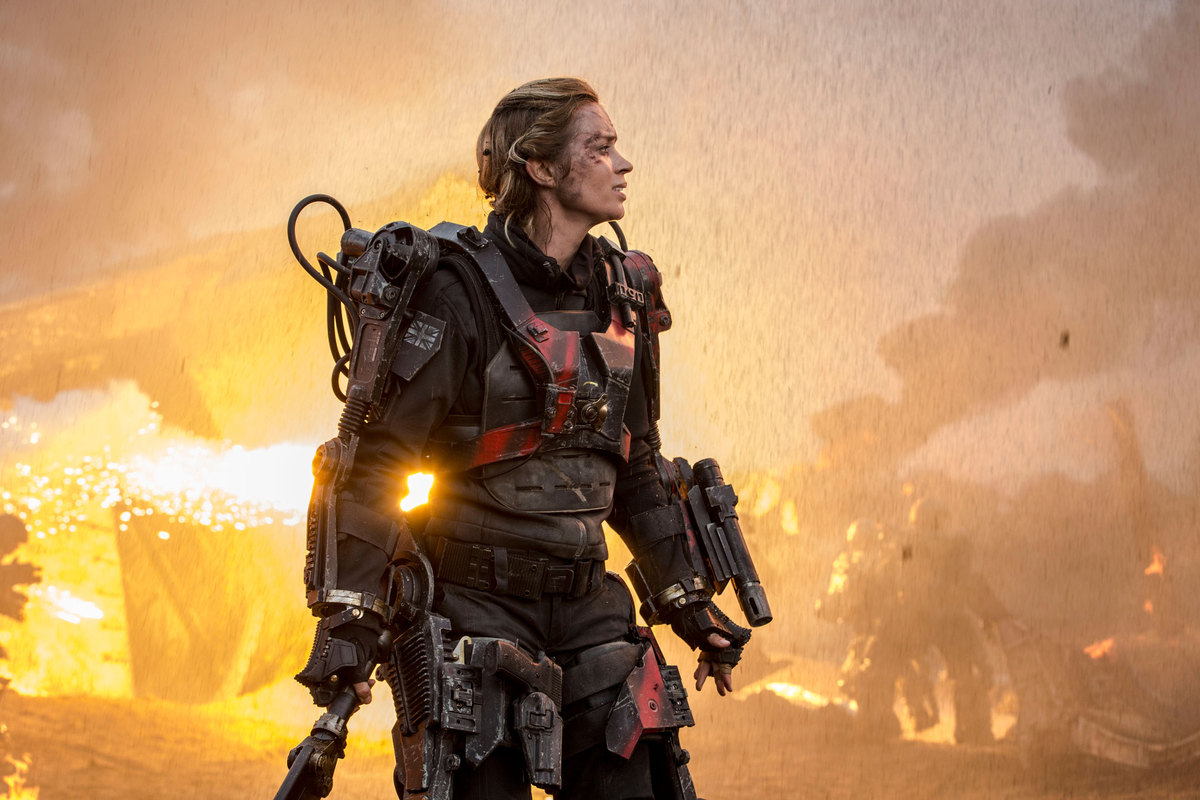 Warner Bros.Tom Cruise’s best movie in nearly a decade had a terrible title and some pretty uninspiring trailers, but none of it mattered when it came to the film itself. As directed by Doug Liman, “Edge of Tomorrow” is like a Road Runner cartoon mixed with “Jerry Maguire” and some lost John Wayne movie about World War II (except with aliens replacing Nazis). Cruise is inspired as the cowardly lieutenant colonel, but it’s Emily Blunt who steals the show. Playing a true war hero (and propaganda symbol) who helps Cruise through his time-travel loop, Blunt is the year’s most awesome action star. “Edge of Tomorrow” was one of the summer’s biggest surprises, and it remains a standout on the list of 2014 features. If only all action movies took as many risks as Liman and his cast do here. — Christopher Rosen
Warner Bros.Tom Cruise’s best movie in nearly a decade had a terrible title and some pretty uninspiring trailers, but none of it mattered when it came to the film itself. As directed by Doug Liman, “Edge of Tomorrow” is like a Road Runner cartoon mixed with “Jerry Maguire” and some lost John Wayne movie about World War II (except with aliens replacing Nazis). Cruise is inspired as the cowardly lieutenant colonel, but it’s Emily Blunt who steals the show. Playing a true war hero (and propaganda symbol) who helps Cruise through his time-travel loop, Blunt is the year’s most awesome action star. “Edge of Tomorrow” was one of the summer’s biggest surprises, and it remains a standout on the list of 2014 features. If only all action movies took as many risks as Liman and his cast do here. — Christopher Rosen -
The Case For “Chef”
 Open RoadThis delightful charmer written, directed by and starring Jon Favreau can feel like blithe, feel-good fare. And it is, but it’s also an artful tale of a man (Favreau) determined not to let his stature dwindle. That goes for his status as a respected California chef and his relationship with his doting preteen son (darling breakout star Emjay Anthony), with whom he sets out to start a bustling food truck. Their road trip takes them to Miami, Austin and New Orleans, giving us a mouth-watering cultural fusion that turns into a heartfelt look at familial bonds and midlife self-discovery. With a supporting cast that includes Scarlett Johansson, Sofia Vergara, Dustin Hoffman, John Leguizamo, Bobby Cannavale and Robert Downey Jr., a kicker here about how “Chef” is delicious fun would be corny, but also appropriate. — Matthew Jacobs
Open RoadThis delightful charmer written, directed by and starring Jon Favreau can feel like blithe, feel-good fare. And it is, but it’s also an artful tale of a man (Favreau) determined not to let his stature dwindle. That goes for his status as a respected California chef and his relationship with his doting preteen son (darling breakout star Emjay Anthony), with whom he sets out to start a bustling food truck. Their road trip takes them to Miami, Austin and New Orleans, giving us a mouth-watering cultural fusion that turns into a heartfelt look at familial bonds and midlife self-discovery. With a supporting cast that includes Scarlett Johansson, Sofia Vergara, Dustin Hoffman, John Leguizamo, Bobby Cannavale and Robert Downey Jr., a kicker here about how “Chef” is delicious fun would be corny, but also appropriate. — Matthew Jacobs -
20. “Top Five”
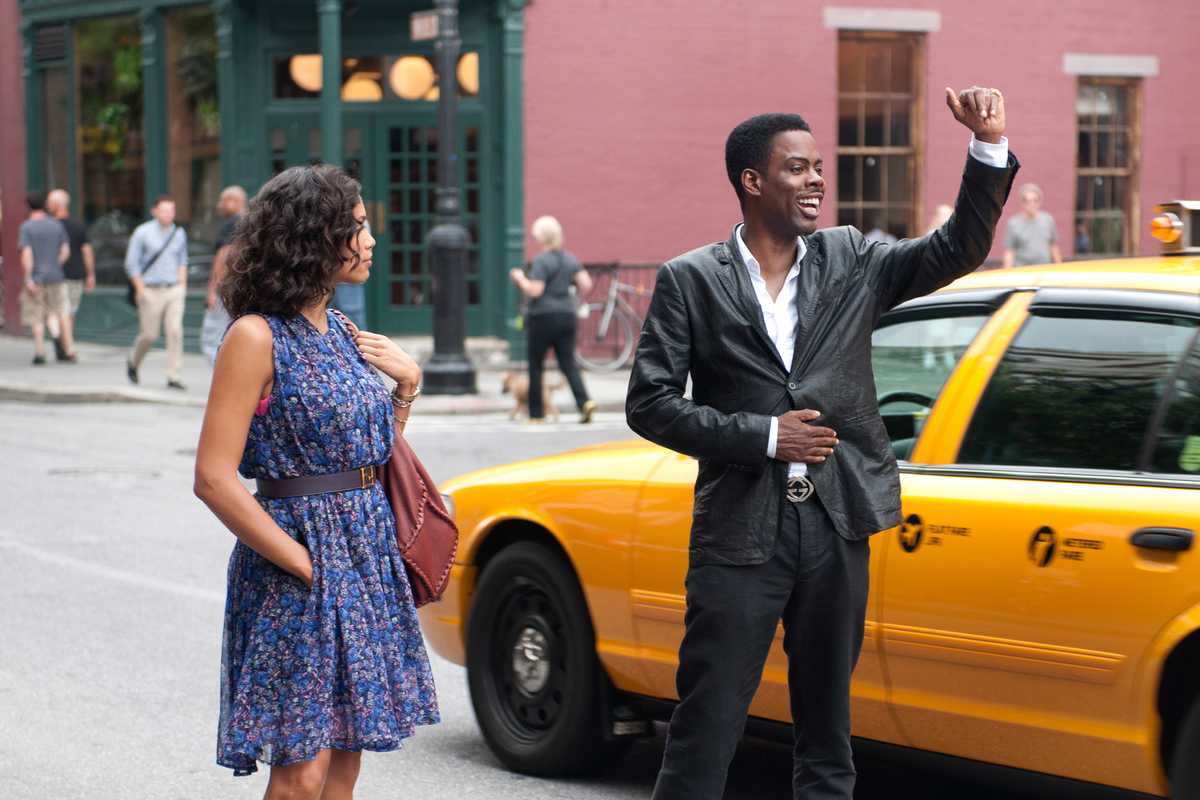 ParamountWhat a year for R-rated comedies not named “A Million Ways to Die In the West”: “Neighbors,” “22 Jump Street,” and “The Interview” were all surprisingly thoughtful, unnecessarily well made and, oh, super effing funny. But none had the sustained laughs and auteur stamp of “Top Five.” Chris Rock’s stab at the kind of personal filmmaking Woody Allen has trafficked in for decades is, for lack of a better word, hilarious. It’s also the kind of movie that asks tough questions about fame, addiction and race relations in a way few comedies dare dream. Rock has never had a platform like this before, but the hope is that he will again. As Allen’s films fade into a kind of dusty obscurity (“Magic in the Moonlight” was so bad that any goodwill leftover from “Blue Jasmine” was lost), maybe Rock can pop out one talky, profane comedy a year in his stead. — CR
ParamountWhat a year for R-rated comedies not named “A Million Ways to Die In the West”: “Neighbors,” “22 Jump Street,” and “The Interview” were all surprisingly thoughtful, unnecessarily well made and, oh, super effing funny. But none had the sustained laughs and auteur stamp of “Top Five.” Chris Rock’s stab at the kind of personal filmmaking Woody Allen has trafficked in for decades is, for lack of a better word, hilarious. It’s also the kind of movie that asks tough questions about fame, addiction and race relations in a way few comedies dare dream. Rock has never had a platform like this before, but the hope is that he will again. As Allen’s films fade into a kind of dusty obscurity (“Magic in the Moonlight” was so bad that any goodwill leftover from “Blue Jasmine” was lost), maybe Rock can pop out one talky, profane comedy a year in his stead. — CR -
19. “The Boxtrolls”
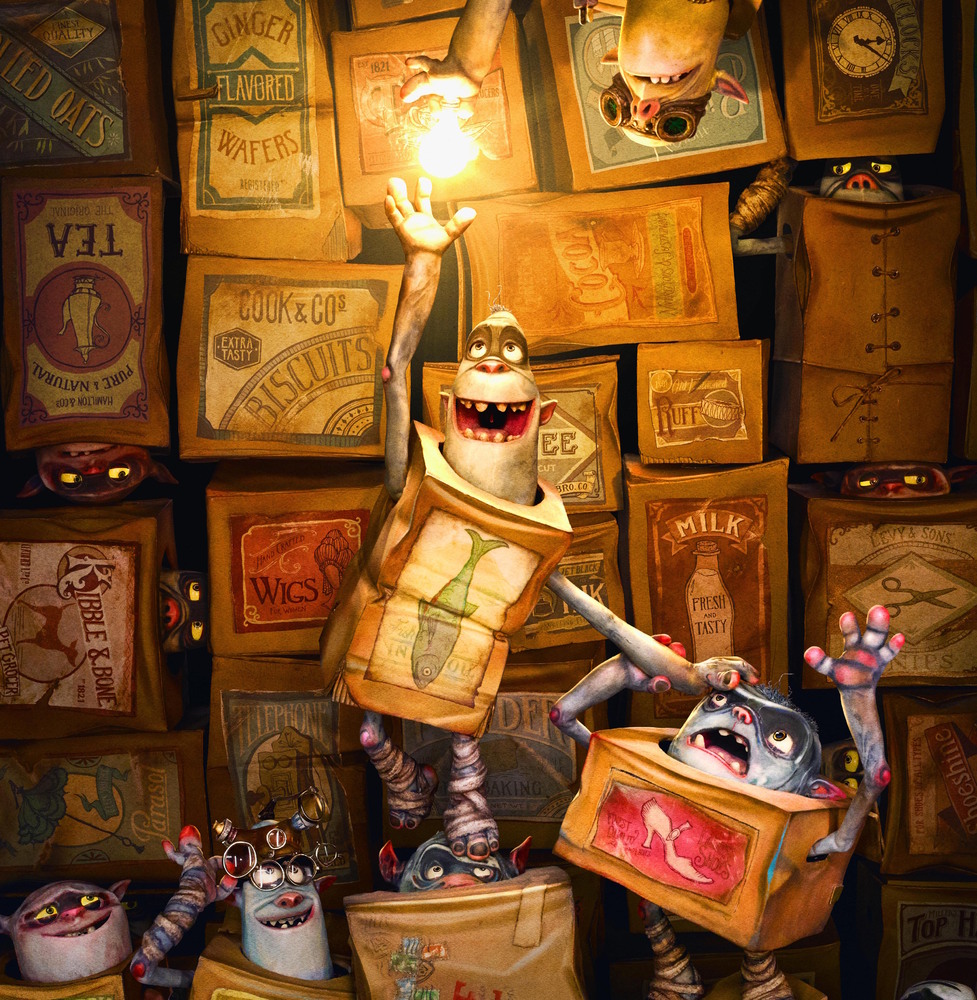 Focus“The LEGO Movie” and “Big Hero 6” gave us action-packed charisma, but “The Boxtrolls” is the animated film that softened our cynical hearts the most this year. That’s what happens when a movie’s protagonist is a subterranean kid named Eggs who’s been raised by a pack of benevolent trolls with no concept of species, gender, race, age or sexuality. If that sounds like the basis for a utopia or perhaps just another think-piece, fear not: The stop-motion film, directed by Graham Annable and Anthony Stacchi, is fun to experience and look at. Its underworld and the aristocracy that wants to squash it provides some of the year’s most imaginative escapism for those of all species, genders, races, ages and sexualities. (CORRECTION: An earlier version stated Henry Selick directed “The Boxtrolls.”) — MJ
Focus“The LEGO Movie” and “Big Hero 6” gave us action-packed charisma, but “The Boxtrolls” is the animated film that softened our cynical hearts the most this year. That’s what happens when a movie’s protagonist is a subterranean kid named Eggs who’s been raised by a pack of benevolent trolls with no concept of species, gender, race, age or sexuality. If that sounds like the basis for a utopia or perhaps just another think-piece, fear not: The stop-motion film, directed by Graham Annable and Anthony Stacchi, is fun to experience and look at. Its underworld and the aristocracy that wants to squash it provides some of the year’s most imaginative escapism for those of all species, genders, races, ages and sexualities. (CORRECTION: An earlier version stated Henry Selick directed “The Boxtrolls.”) — MJ -
18. “Beyond the Lights”
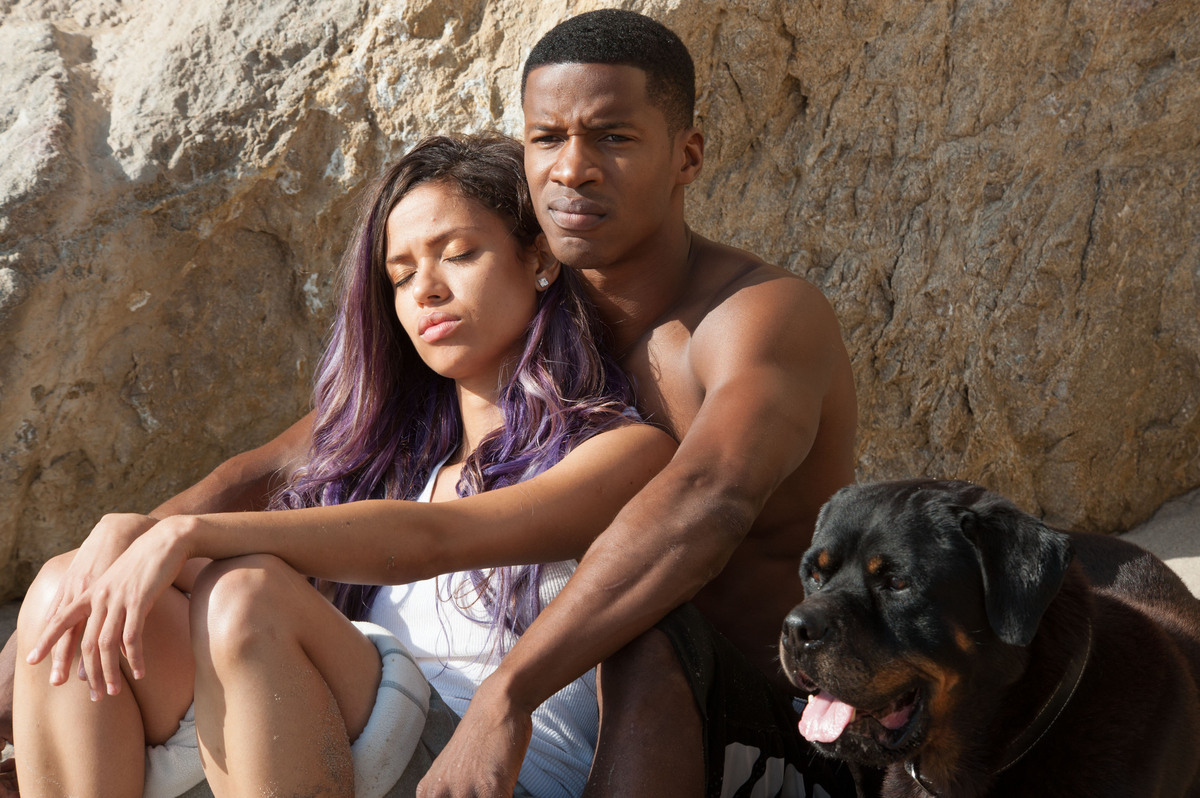 RelativityFourteen years after its release, “Love & Basketball” had a bit of a resurgence this year (Roxane Gay and Lena Dunham are fans). Maybe it won’t take so long for director Gina Prince-Bythewood’s latest film, “Beyond the Lights,” to catch on with the zeitgeist. An old-school Hollywood romance that doubles as a modern investigation about how the music industry over-sexualizes female performers, “Beyond the Lights” was one of the year’s best love stories. It features what should be a star-making turn from Nate Parker (get him a Bond movie) and transformative work from Gugu Mbatha-Raw. In a better world, Mbatha-Raw would be in the thick of the Best Actress race for playing Noni, a pop star who strips away the artifice of her record label (and her stage mother, played by Minnie Driver) to find an honesty that she has avoided since youth. Put her in all the movies. — CR
RelativityFourteen years after its release, “Love & Basketball” had a bit of a resurgence this year (Roxane Gay and Lena Dunham are fans). Maybe it won’t take so long for director Gina Prince-Bythewood’s latest film, “Beyond the Lights,” to catch on with the zeitgeist. An old-school Hollywood romance that doubles as a modern investigation about how the music industry over-sexualizes female performers, “Beyond the Lights” was one of the year’s best love stories. It features what should be a star-making turn from Nate Parker (get him a Bond movie) and transformative work from Gugu Mbatha-Raw. In a better world, Mbatha-Raw would be in the thick of the Best Actress race for playing Noni, a pop star who strips away the artifice of her record label (and her stage mother, played by Minnie Driver) to find an honesty that she has avoided since youth. Put her in all the movies. — CR -
17. “The Fault in Our Stars”
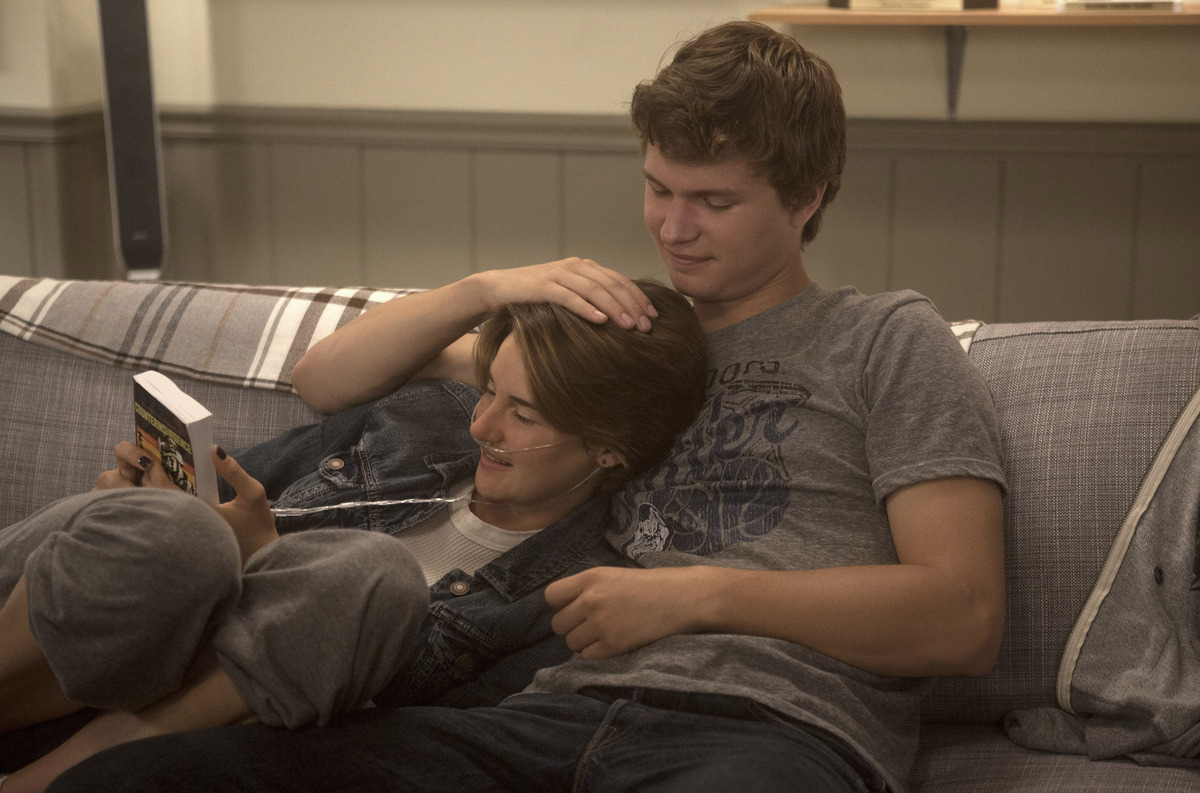 FoxOkay? Okay. If “Beyond the Lights” is the year’s best love story, consider “The Fault in Our Stars” its best weepie. This is a three-hanky movie, at minimum; an ugly-cry special for the ages. Based on John Green’s best-selling book, “The Fault in Our Stars” handles teenage love and terminal illness with an aplomb that is often absent from those classifications when each is translated to film. Ansel Elgort is our new Tom Cruise based on this one (he’s just so damn charming), while Shailene Woodley continued to prove she’s the Ally Sheedy to Jennifer Lawrence’s Molly Ringwald. There’s a reason Woodley graced every magazine cover this year that Lawrence did not. — CR
FoxOkay? Okay. If “Beyond the Lights” is the year’s best love story, consider “The Fault in Our Stars” its best weepie. This is a three-hanky movie, at minimum; an ugly-cry special for the ages. Based on John Green’s best-selling book, “The Fault in Our Stars” handles teenage love and terminal illness with an aplomb that is often absent from those classifications when each is translated to film. Ansel Elgort is our new Tom Cruise based on this one (he’s just so damn charming), while Shailene Woodley continued to prove she’s the Ally Sheedy to Jennifer Lawrence’s Molly Ringwald. There’s a reason Woodley graced every magazine cover this year that Lawrence did not. — CR -
16. “Inherent Vice”
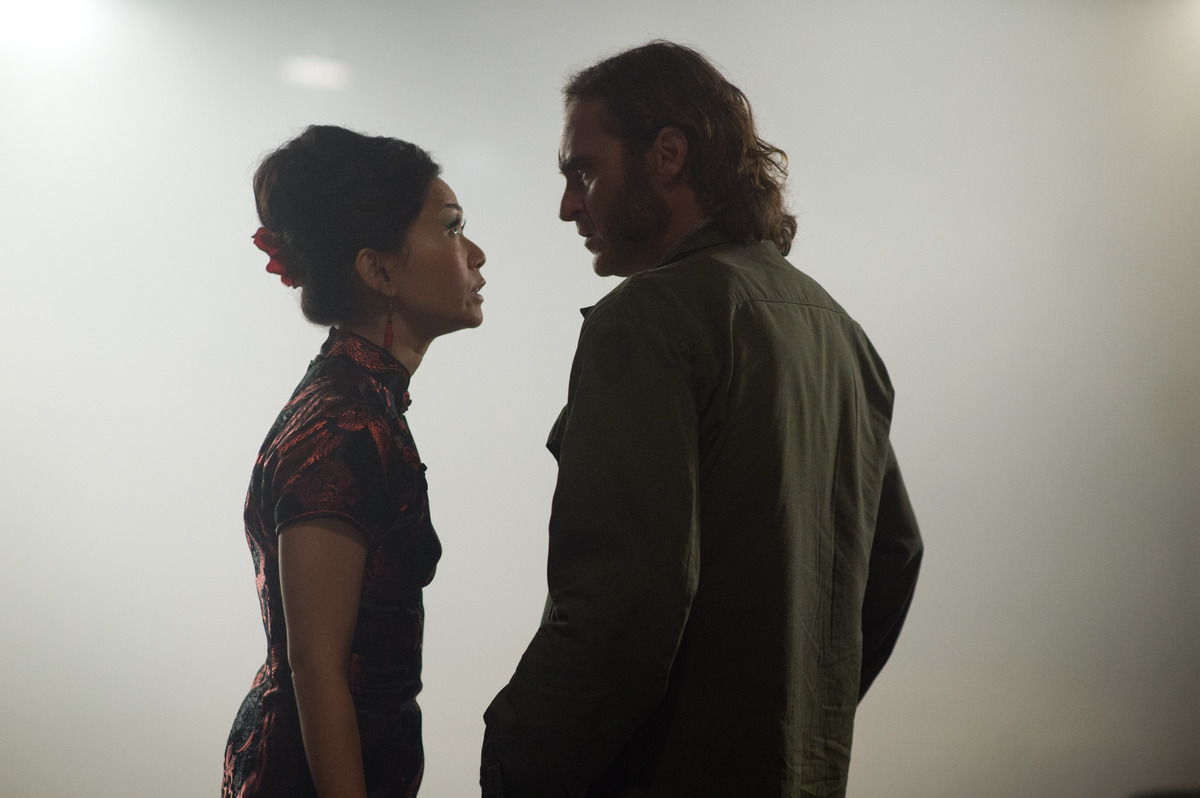 Warner Bros.Even Paul Thomas Anderson would admit that seeing “Inherent Vice” twice is the best way to experience his Thomas Pynchon adaptation. That’s not just pretentious lip service either: Because of an opaque plot, one that involves a missing real estate mogul, a cabal of dentists, a surf-rock saxophone player and a drug-addled detective named Doc (Joaquin Phoenix), audiences might get too wrapped up in connecting the dots on a first view. The second time around, things not only clear up — the plot does make sense in its own absurd manner — but fall to the wayside, leaving the joys of Anderson’s melancholy period piece to take center stage. Props to cinematographer Robert Elswit and composer Jonny Greenwood for helping Anderson realize this dusty vision, one that deals with loss of innocence and the meaning of brotherhood better than any other movie this year. — CR
Warner Bros.Even Paul Thomas Anderson would admit that seeing “Inherent Vice” twice is the best way to experience his Thomas Pynchon adaptation. That’s not just pretentious lip service either: Because of an opaque plot, one that involves a missing real estate mogul, a cabal of dentists, a surf-rock saxophone player and a drug-addled detective named Doc (Joaquin Phoenix), audiences might get too wrapped up in connecting the dots on a first view. The second time around, things not only clear up — the plot does make sense in its own absurd manner — but fall to the wayside, leaving the joys of Anderson’s melancholy period piece to take center stage. Props to cinematographer Robert Elswit and composer Jonny Greenwood for helping Anderson realize this dusty vision, one that deals with loss of innocence and the meaning of brotherhood better than any other movie this year. — CR -
15. “Life Itself”
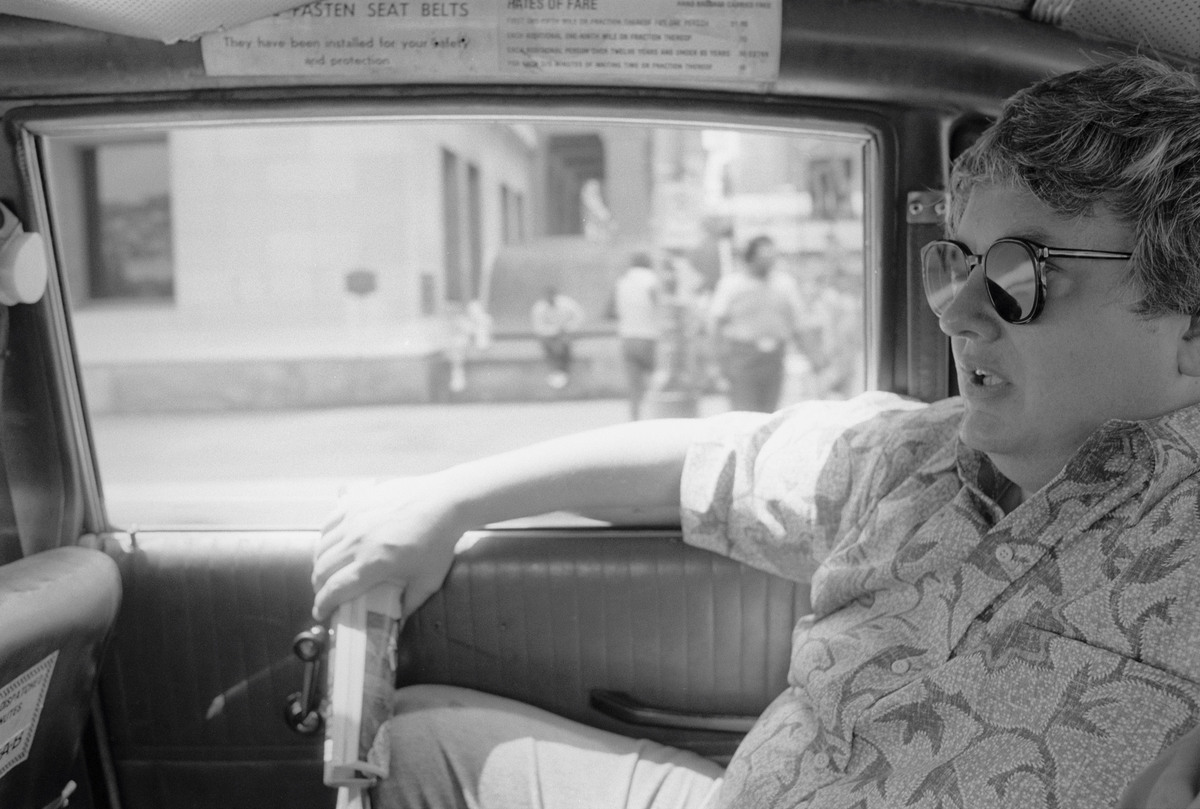 MagnoliaRoger Ebert lived as if he’d cast himself as the star of his own biographical movie. But when a dignitary known for his distinct voice loses the ability to speak, he’s forced to rewrite his legacy. That’s what we witness as Steve James trails Ebert’s final days, before he died at age 71. Except the thesis of “Life Itself” — just like the thesis of Ebert’s life — is that revisions gave him the opportunity to ensure his legacy remained as he’d defined it. An unapologetic force of American culture, Ebert’s illustrious tenure as the nation’s favorite film critic and the blemishes that bubbled beneath the surface of his striking prose become one of the year’s most wrenching films. “Life Itself” is both an ode to and an exposé of the warts that troubled a young Ebert, his fraught relationship with “At the Movies” co-host Gene Siskel and the endless passion he possessed for cinema. It is unforgettable. — MJ
MagnoliaRoger Ebert lived as if he’d cast himself as the star of his own biographical movie. But when a dignitary known for his distinct voice loses the ability to speak, he’s forced to rewrite his legacy. That’s what we witness as Steve James trails Ebert’s final days, before he died at age 71. Except the thesis of “Life Itself” — just like the thesis of Ebert’s life — is that revisions gave him the opportunity to ensure his legacy remained as he’d defined it. An unapologetic force of American culture, Ebert’s illustrious tenure as the nation’s favorite film critic and the blemishes that bubbled beneath the surface of his striking prose become one of the year’s most wrenching films. “Life Itself” is both an ode to and an exposé of the warts that troubled a young Ebert, his fraught relationship with “At the Movies” co-host Gene Siskel and the endless passion he possessed for cinema. It is unforgettable. — MJ -
14. “The Babadook”
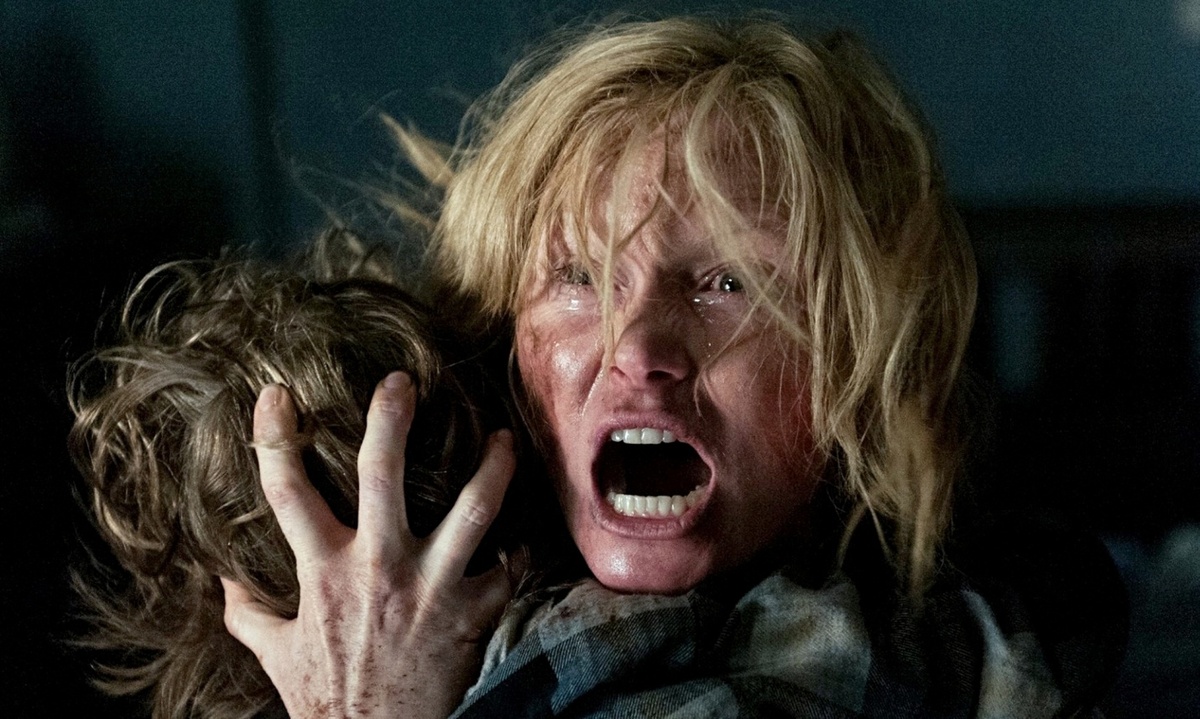 IFC“The Babadook” is proof the horror genre was not laid to rest with the rise of found-footage films and M. Night Shyamalan atrocities. Jennifer Kent’s Australian chiller is also the most astute debut feature of any genre this year. The tale of a macabre storybook that when read summons the titular creature for a lifelong haunting, “The Babadook” is chopped together with fast-paced terror that unfolds like a 93-minute nightmare, topped with commanding performances from Essie Davis and Noah Wiseman as, respectively, the troubled mother and son cursed by the book that won’t disappear. The real triumph of “The Babadook” is how much is stays with you long after the screen fades to black. Questions about imagination versus reality and the bleak fibers of dismissing one’s demons become the film’s lingering terror. — MJ
IFC“The Babadook” is proof the horror genre was not laid to rest with the rise of found-footage films and M. Night Shyamalan atrocities. Jennifer Kent’s Australian chiller is also the most astute debut feature of any genre this year. The tale of a macabre storybook that when read summons the titular creature for a lifelong haunting, “The Babadook” is chopped together with fast-paced terror that unfolds like a 93-minute nightmare, topped with commanding performances from Essie Davis and Noah Wiseman as, respectively, the troubled mother and son cursed by the book that won’t disappear. The real triumph of “The Babadook” is how much is stays with you long after the screen fades to black. Questions about imagination versus reality and the bleak fibers of dismissing one’s demons become the film’s lingering terror. — MJ -
13. “Guardians of the Galaxy”
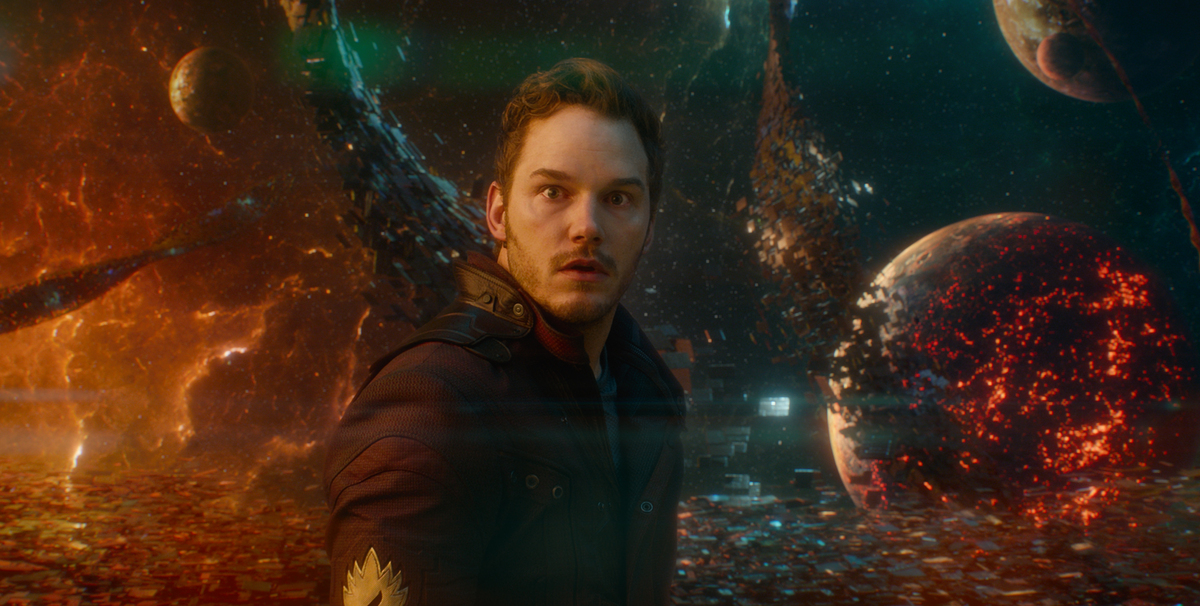 DisneyFrom the K-Billy Super Sounds of the ’70s soundtrack to the out-of-the-box casting choices (Chris Pratt as the hero, Bradley Cooper as a talking raccoon, Vin Diesel as a space tree) to Dancing Baby Groot, “Guardians of the Galaxy” was the closest we’ll ever get to “Star Wars” as directed by Quentin Tarantino. It’s a little bit of both: the best movie Marvel’s ever done and the most enjoyable summer blockbuster since “Star Trek.” — CR
DisneyFrom the K-Billy Super Sounds of the ’70s soundtrack to the out-of-the-box casting choices (Chris Pratt as the hero, Bradley Cooper as a talking raccoon, Vin Diesel as a space tree) to Dancing Baby Groot, “Guardians of the Galaxy” was the closest we’ll ever get to “Star Wars” as directed by Quentin Tarantino. It’s a little bit of both: the best movie Marvel’s ever done and the most enjoyable summer blockbuster since “Star Trek.” — CR -
12. “Foxcatcher”
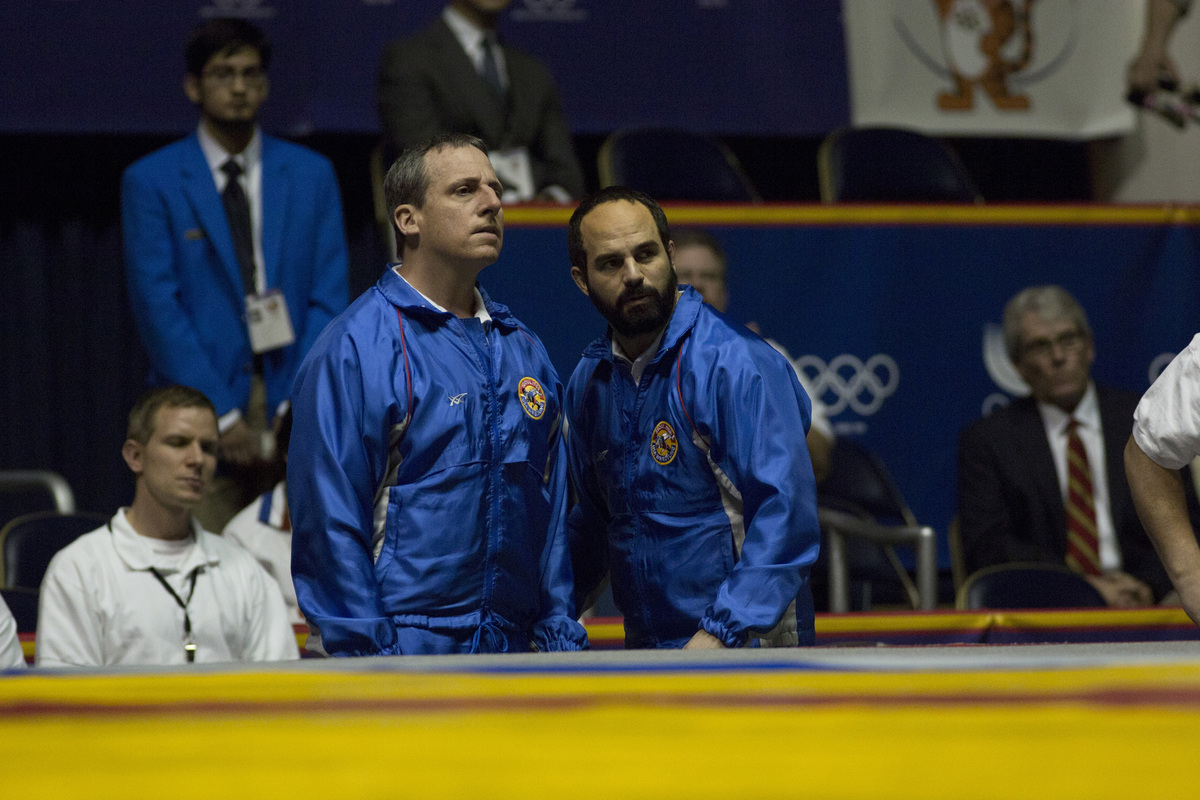 Sony Pictures ClassicsThe fact-based “Foxacatcher” is a case study in derangement, told with a chilly remove. Pitiful multimillionaire John du Pont (a shocking Steve Carell) looks to his Foxcatcher Farm, a compound for Olympic wrestlers in training, to exact his misguided self-worth. He recruits two talented brothers, Mark and Dave Schultz (Channing Tatum and Mark Ruffalo, respectively), who mirror everything du Pont thinks he needs: a protégé who’ll let him play father figure, pets who’ll heed his demands. That is, until du Pont’s instability rears its intemperate head. All three men suffer, and all three actors submit career-best performances, spurred on by the arctic tone director Bennett Miller masterfully employs. “Foxcatcher” works because it doesn’t tell you what to think of these complicated men — their motives are sometimes as much of a puzzle as the unjust cards they were dealt. — MJ
Sony Pictures ClassicsThe fact-based “Foxacatcher” is a case study in derangement, told with a chilly remove. Pitiful multimillionaire John du Pont (a shocking Steve Carell) looks to his Foxcatcher Farm, a compound for Olympic wrestlers in training, to exact his misguided self-worth. He recruits two talented brothers, Mark and Dave Schultz (Channing Tatum and Mark Ruffalo, respectively), who mirror everything du Pont thinks he needs: a protégé who’ll let him play father figure, pets who’ll heed his demands. That is, until du Pont’s instability rears its intemperate head. All three men suffer, and all three actors submit career-best performances, spurred on by the arctic tone director Bennett Miller masterfully employs. “Foxcatcher” works because it doesn’t tell you what to think of these complicated men — their motives are sometimes as much of a puzzle as the unjust cards they were dealt. — MJ -
11. “Obvious Child”
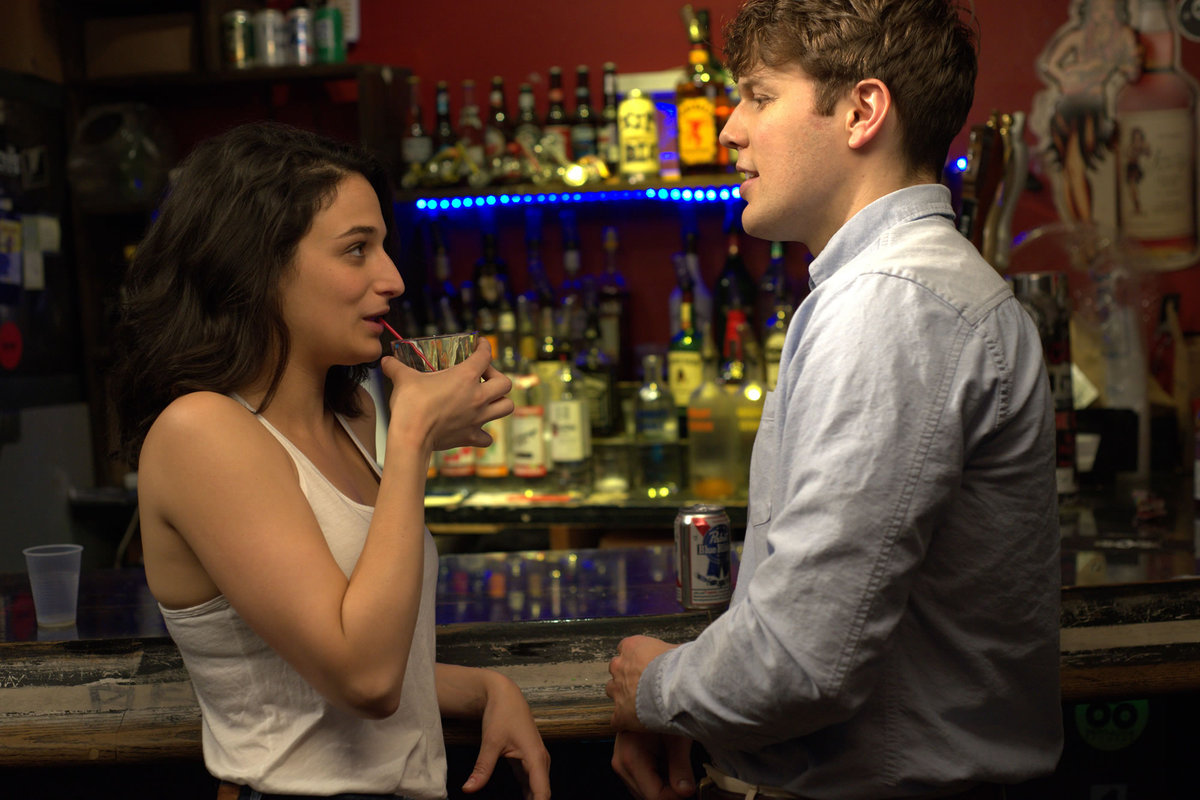 A24Remember romantic comedies? They were a thing once, something “Obvious Child” helpfully reminded audiences this past summer. Written and directed by Gillian Robespierre, “Obvious Child” is as charming as any Tom Hanks-Meg Ryan romp, while also being progressive in a way that feels, well, obvious. “Obvious Child” treats abortion like the safe medical procedure it is, and allows its protagonist, the loopy Donna Stern (a perfect Jenny Slate), to make her decision without any shame or proselytization (but with fart jokes). — CR
A24Remember romantic comedies? They were a thing once, something “Obvious Child” helpfully reminded audiences this past summer. Written and directed by Gillian Robespierre, “Obvious Child” is as charming as any Tom Hanks-Meg Ryan romp, while also being progressive in a way that feels, well, obvious. “Obvious Child” treats abortion like the safe medical procedure it is, and allows its protagonist, the loopy Donna Stern (a perfect Jenny Slate), to make her decision without any shame or proselytization (but with fart jokes). — CR -
10. “The One I Love”
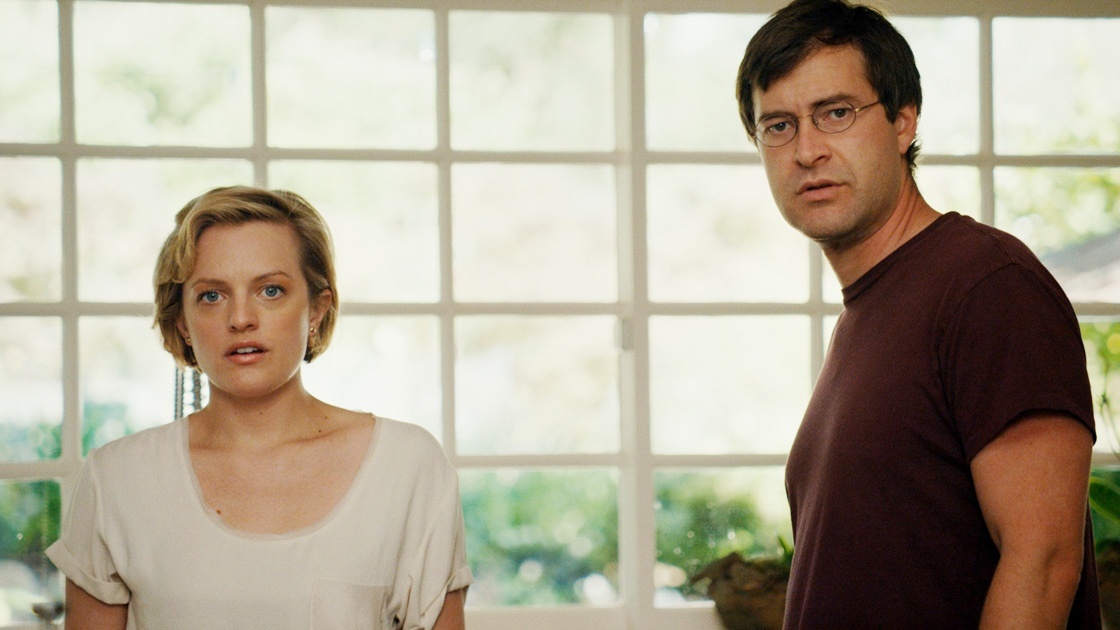 Radius-TWCWhat if your love story could start over? Would it do more good or harm? “The One I Love” tackles these questions through a premise so unusual we’d rather not explain it. Let’s just say that during a weekend away, a couple (Mark Duplass and Elisabeth Moss) stumbles upon a bizarre way to return to the glory days of their now-crumbling relationship. Its surreality makes “The One I Love” a comedy. Still, you’ll be surprised how long the movie’s quiet existentialism leaves you thinking. — MJ
Radius-TWCWhat if your love story could start over? Would it do more good or harm? “The One I Love” tackles these questions through a premise so unusual we’d rather not explain it. Let’s just say that during a weekend away, a couple (Mark Duplass and Elisabeth Moss) stumbles upon a bizarre way to return to the glory days of their now-crumbling relationship. Its surreality makes “The One I Love” a comedy. Still, you’ll be surprised how long the movie’s quiet existentialism leaves you thinking. — MJ -
9. “Wild”
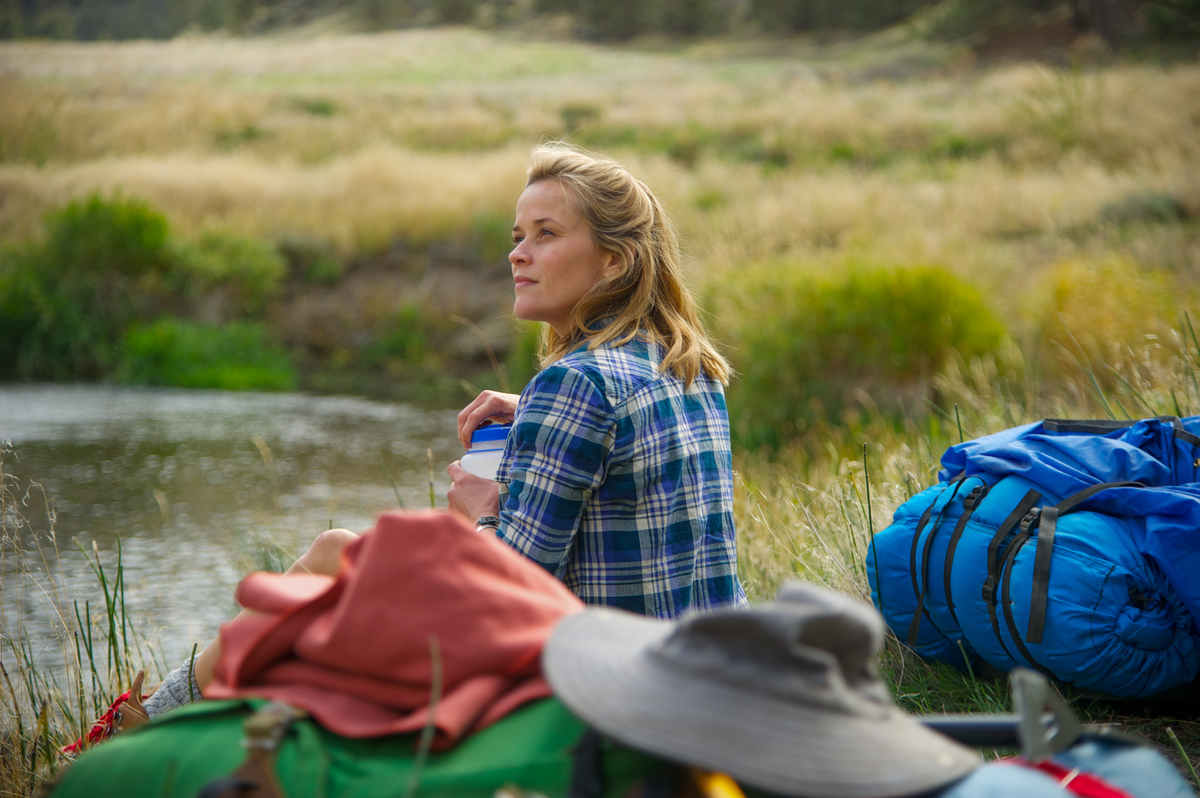 Fox SearchlightBased on Cheryl Strayed’s memoir of the same name, Jean-Marc Vallée’s “Wild” is a story of personal discovery, self-realization and the healing power of a 1,100 mile hike. The standout here is Reese Witherspoon, who gives her best performance in an age. But also take note of Vallée, who expands on the themes and style he used to lesser effect in last year’s overrated “Dallas Buyers Club.” (If Vallée truly is the next Hal Ashby, “Wild” is a strong reason why.) “Wild” hits all the right notes, and in a year of bombastic biopics — “Unbroken,” “The Theory of Everything” — stands out because of its nuance, subtlety and humanity. This is a beautiful movie. — CR
Fox SearchlightBased on Cheryl Strayed’s memoir of the same name, Jean-Marc Vallée’s “Wild” is a story of personal discovery, self-realization and the healing power of a 1,100 mile hike. The standout here is Reese Witherspoon, who gives her best performance in an age. But also take note of Vallée, who expands on the themes and style he used to lesser effect in last year’s overrated “Dallas Buyers Club.” (If Vallée truly is the next Hal Ashby, “Wild” is a strong reason why.) “Wild” hits all the right notes, and in a year of bombastic biopics — “Unbroken,” “The Theory of Everything” — stands out because of its nuance, subtlety and humanity. This is a beautiful movie. — CR -
8. “Whiplash”
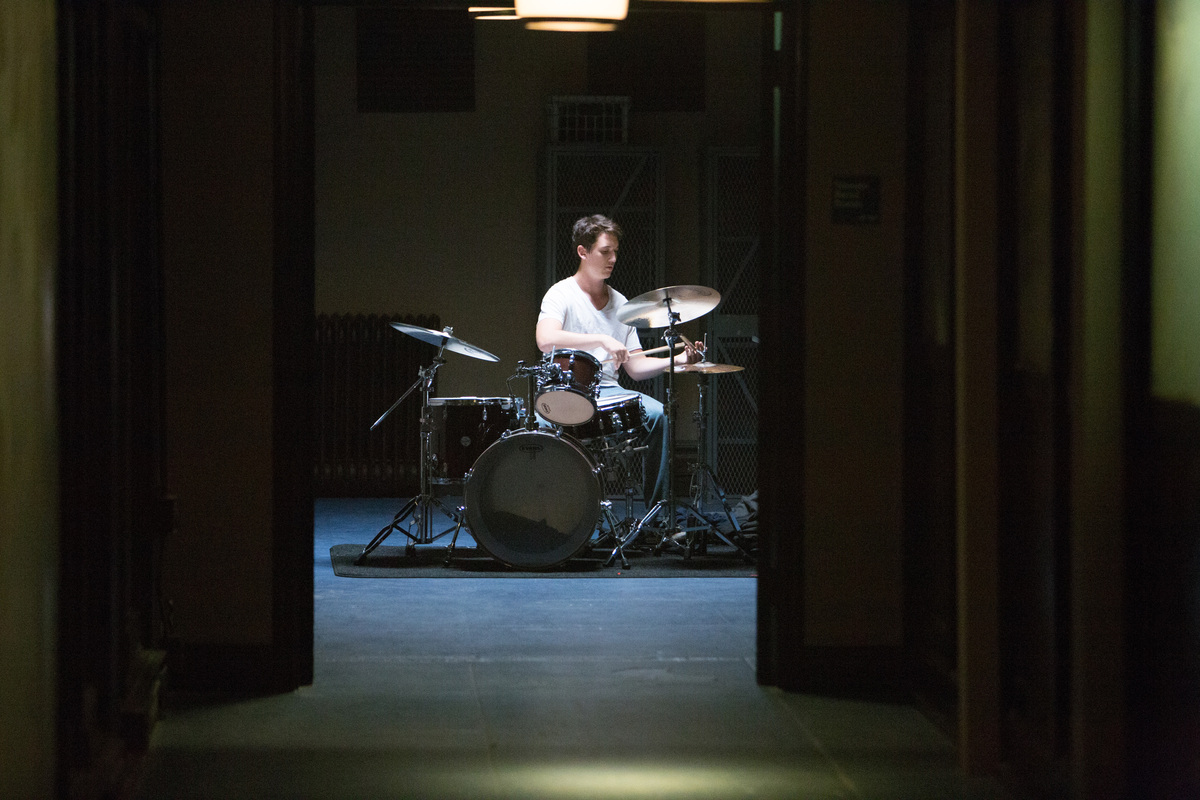 Sony Pictures ClassicsIf kinetic tempos are a fixture of 2014’s movies, “Whiplash” has great company. Furiously told and infuriating to watch, Damien Chazelle’s stormy portrait of a vicious music instructor (J.K. Simmons) and his dedicated pupil (Miles Teller) offers a ride so wild that you’ll feel like you’re standing in middle of a 106-minute crescendo. Simmons and Teller are masterful, shattering every teacher-movie trope in favor of an invigorating look at the lengths a person will go to exact his passion. — MJ
Sony Pictures ClassicsIf kinetic tempos are a fixture of 2014’s movies, “Whiplash” has great company. Furiously told and infuriating to watch, Damien Chazelle’s stormy portrait of a vicious music instructor (J.K. Simmons) and his dedicated pupil (Miles Teller) offers a ride so wild that you’ll feel like you’re standing in middle of a 106-minute crescendo. Simmons and Teller are masterful, shattering every teacher-movie trope in favor of an invigorating look at the lengths a person will go to exact his passion. — MJ -
7. “The Grand Budapest Hotel”
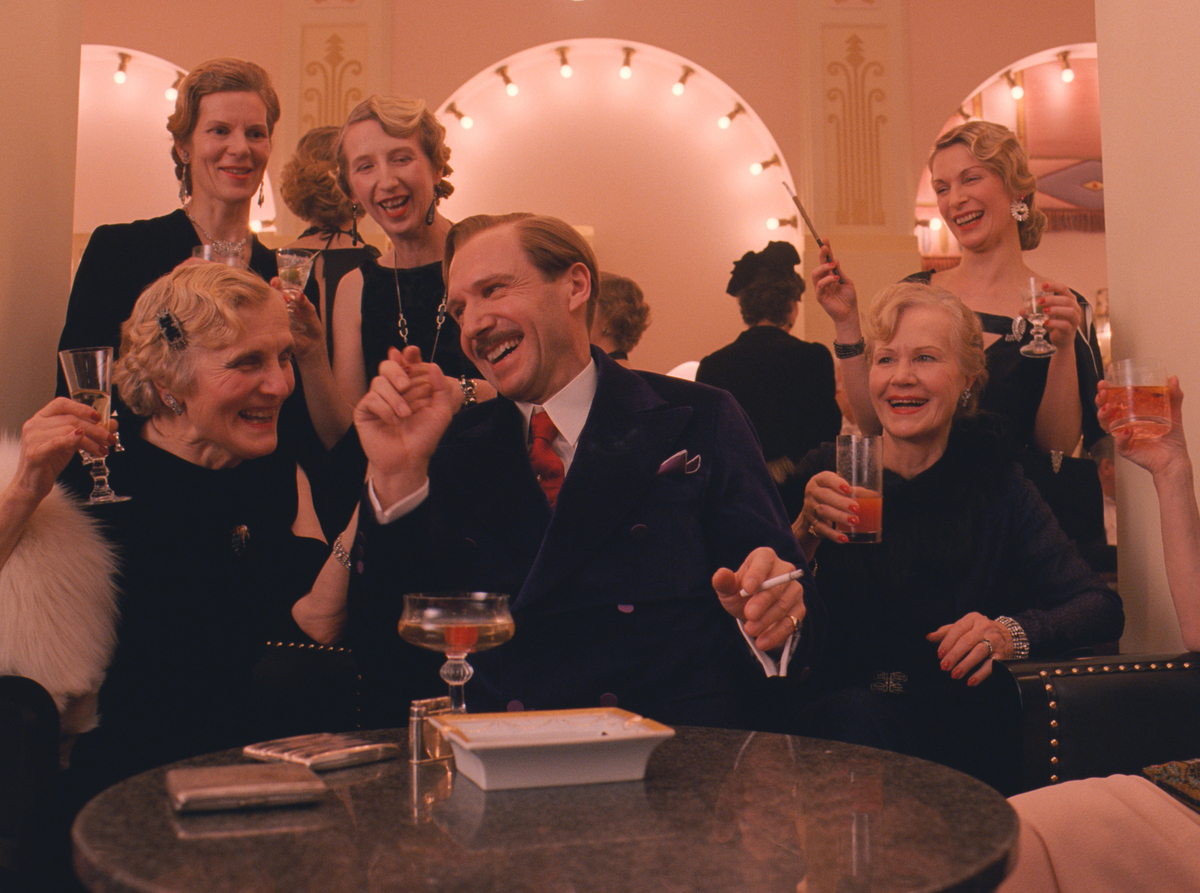 Fox SearchlightWes Anderson’s films have become so Wes Anderson-like that in some ways they play as parodies of themselves. The “Moonrise Kingdom” and “Royal Tenenbaums” director rewrote that predilection with “The Grand Budapest Hotel,” a film that aligns with Anderson’s canon, but expands on his well-worn tropes and tricks. Predominantly set between the wars — but also in three other time periods — we find ourselves in the pink-colored halls of The Grand Budapest Hotel, and in the care of a hand-kissing concierge (Ralph Fiennes). What follows is a zany goose chase around the European countryside. It’s certified Wes Anderson twee mixed in with some genuinely poignant notes about life and loss. — MJ
Fox SearchlightWes Anderson’s films have become so Wes Anderson-like that in some ways they play as parodies of themselves. The “Moonrise Kingdom” and “Royal Tenenbaums” director rewrote that predilection with “The Grand Budapest Hotel,” a film that aligns with Anderson’s canon, but expands on his well-worn tropes and tricks. Predominantly set between the wars — but also in three other time periods — we find ourselves in the pink-colored halls of The Grand Budapest Hotel, and in the care of a hand-kissing concierge (Ralph Fiennes). What follows is a zany goose chase around the European countryside. It’s certified Wes Anderson twee mixed in with some genuinely poignant notes about life and loss. — MJ -
6. “Nightcrawler”
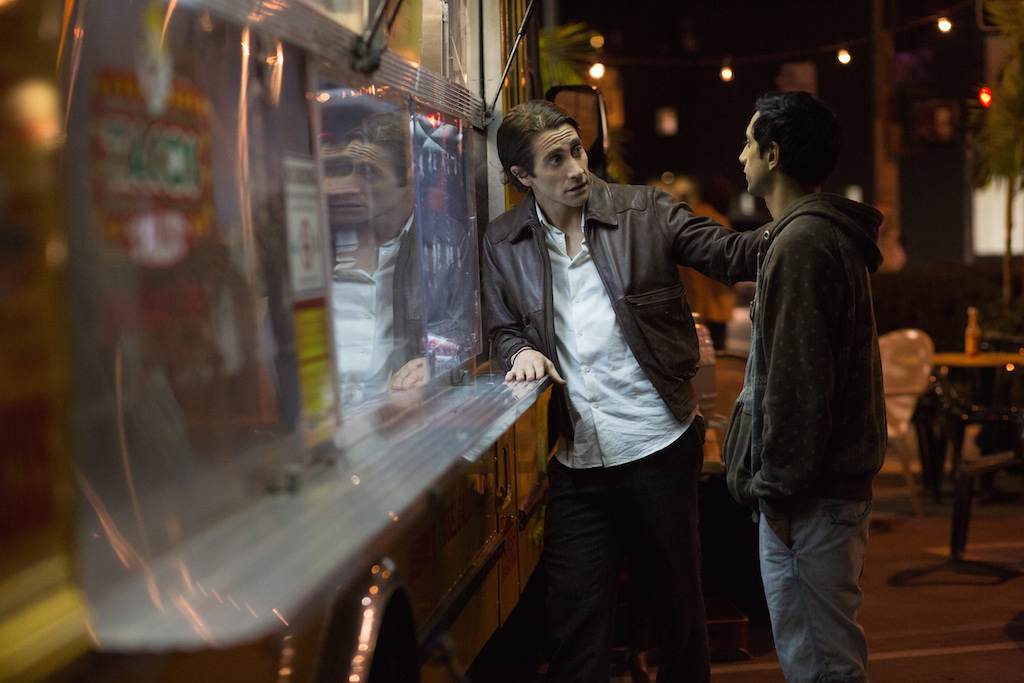 Open Road“Nightcrawler” is so good, it should have come out in 1999, when maverick filmmakers like David Fincher, David O. Russell, Paul Thomas Anderson and Spike Jonze were connecting with big swings. Dan Gilroy’s directorial debut is an amalgam of “Network,” “Psycho” and “Bringing Out the Dead,” a biting satire about the media and the American dream in 2014. At the center is Jake Gyllenhaal as Lou Bloom, a tightly coiled lost boy who finds his calling as a freelance news videographer. Lou’s a Horatio Alger for the modern age, and the lengths he goes to remain a success are horrifying and hilarious, often at the same time. — CR
Open Road“Nightcrawler” is so good, it should have come out in 1999, when maverick filmmakers like David Fincher, David O. Russell, Paul Thomas Anderson and Spike Jonze were connecting with big swings. Dan Gilroy’s directorial debut is an amalgam of “Network,” “Psycho” and “Bringing Out the Dead,” a biting satire about the media and the American dream in 2014. At the center is Jake Gyllenhaal as Lou Bloom, a tightly coiled lost boy who finds his calling as a freelance news videographer. Lou’s a Horatio Alger for the modern age, and the lengths he goes to remain a success are horrifying and hilarious, often at the same time. — CR -
5. “Boyhood”
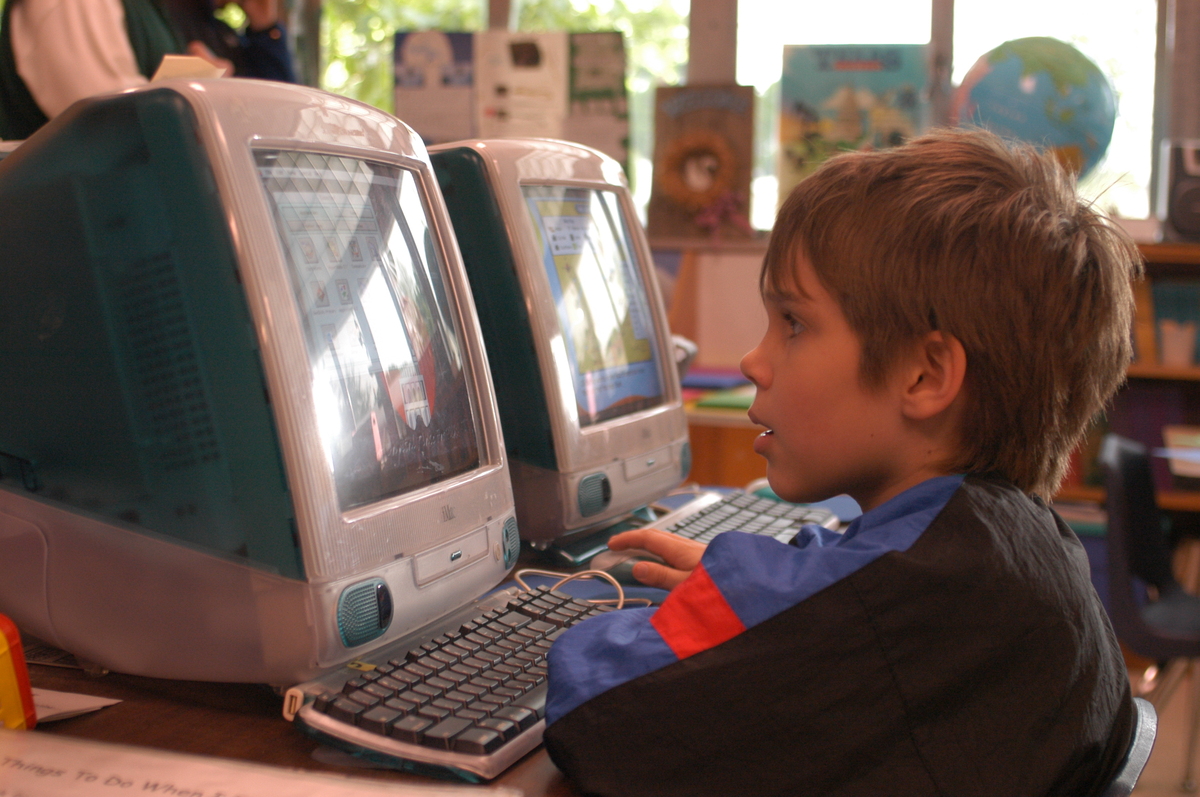 IFCA more emotionally honest portrait of growing up has never been put onscreen. That’s because Richard Linklater spent 12 years filming “Boyhood,” turning this little movie about a boy becoming a man into a directorial achievement on par with what Alfonso Cuarón did with “Gravity.” The way Linklater edits his literal years of footage is impressive, and his careful repudiation of big moments in favor small ones makes “Boyhood” feel akin to life itself. “Boyhood” is a time capsule for the audience, something Linklater expresses via music (the first song we hear is Coldplay’s “Yellow”) and conversation (there’s a lot of George W. Bush bashing). It’s all so good and effortless that people might take “Boyhood” for granted. Don’t make that mistake: We’ll never see a movie like this again. — CR
IFCA more emotionally honest portrait of growing up has never been put onscreen. That’s because Richard Linklater spent 12 years filming “Boyhood,” turning this little movie about a boy becoming a man into a directorial achievement on par with what Alfonso Cuarón did with “Gravity.” The way Linklater edits his literal years of footage is impressive, and his careful repudiation of big moments in favor small ones makes “Boyhood” feel akin to life itself. “Boyhood” is a time capsule for the audience, something Linklater expresses via music (the first song we hear is Coldplay’s “Yellow”) and conversation (there’s a lot of George W. Bush bashing). It’s all so good and effortless that people might take “Boyhood” for granted. Don’t make that mistake: We’ll never see a movie like this again. — CR -
4. “Birdman”
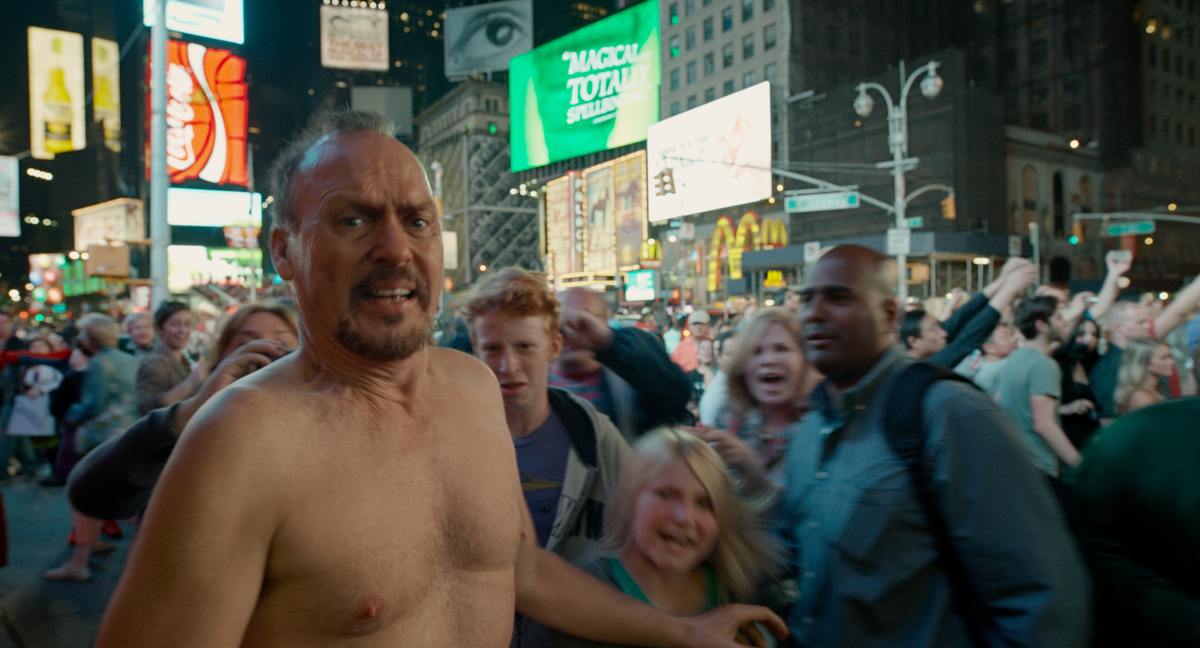 Fox SearchlightAs a frenetic take on the egos that fuel Hollywood politics, “Birdman” plays like a volatile amusement-park ride. It’s two hours of constrained frenzy, the tonal ebbs and flows as electric as the outsize personalities involved with the Broadway production that’s meant to double as washed-up actor Riggan Thompson’s (Michael Keaton) career comeback. Underneath Alejandro González Iñárritu’s premise is a movie that abounds with pop-culture references, meta commentary about the relationship between artists and critics, and a trenchant portrait of the crisis that rings through one man’s head as he leaves his younger success behind. Filmed by Emmanuel Lubezki (“Gravity”) under the rousing guise of one long continuous take, “Birdman” soars. — MJ
Fox SearchlightAs a frenetic take on the egos that fuel Hollywood politics, “Birdman” plays like a volatile amusement-park ride. It’s two hours of constrained frenzy, the tonal ebbs and flows as electric as the outsize personalities involved with the Broadway production that’s meant to double as washed-up actor Riggan Thompson’s (Michael Keaton) career comeback. Underneath Alejandro González Iñárritu’s premise is a movie that abounds with pop-culture references, meta commentary about the relationship between artists and critics, and a trenchant portrait of the crisis that rings through one man’s head as he leaves his younger success behind. Filmed by Emmanuel Lubezki (“Gravity”) under the rousing guise of one long continuous take, “Birdman” soars. — MJ -
3. “Gone Girl”
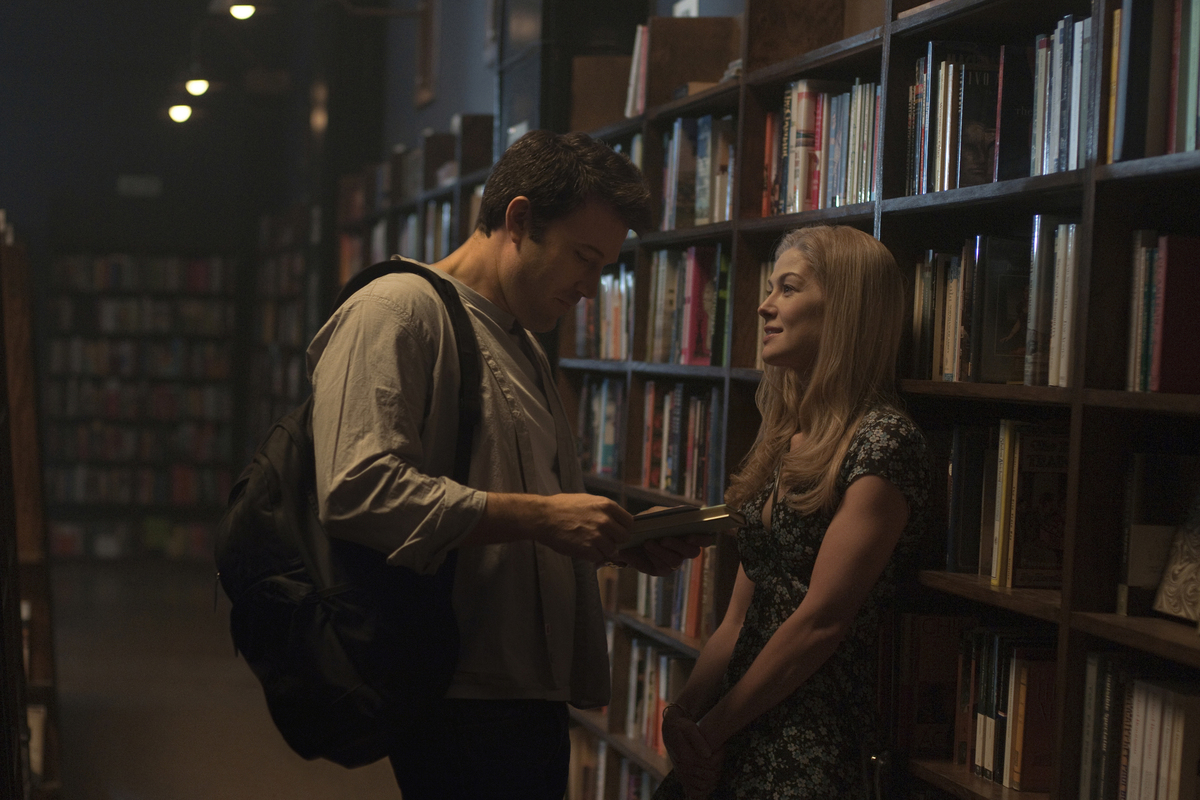 FoxSometime after “The Curious Case of Benjamin Button,” David Fincher decided to become our preeminent director of books people read on airplanes. As long as the films continue to be as good as “Gone Girl,” we’re cool with that. In translating Gillian Flynn’s best-selling novel to the screen (with a tight script written by Flynn herself), Fincher has created a black comedy for the ages. “Gone Girl” is twisted and mean, a perverse dance between two duplicitous people who deserve each other more than most couples in the throes of true love. As Nick Dunne, the bro with a wandering eye, Ben Affleck has never been better. He’s matched by Rosamund Pike, as Nick’s wife, Amazing Amy, who gives a performance that would have made Alfred Hitchcock nod in approval. The supporting cast is just as strong; shouts here to Carrie Coon, Kim Dickens and, lol, Tyler Perry because Fincher decided he could literally do anything in this movie. “Gone Girl” proved to be one of the year’s most controversial films — oh, the think pieces it spawned! — but that just seems to reinforce its brilliance. Like the best films, “Gone Girl” is challenging, messy and leaves more questions than answers. In an era of giving audiences what they want, praise to Fincher for giving us what we can debate. — CR
FoxSometime after “The Curious Case of Benjamin Button,” David Fincher decided to become our preeminent director of books people read on airplanes. As long as the films continue to be as good as “Gone Girl,” we’re cool with that. In translating Gillian Flynn’s best-selling novel to the screen (with a tight script written by Flynn herself), Fincher has created a black comedy for the ages. “Gone Girl” is twisted and mean, a perverse dance between two duplicitous people who deserve each other more than most couples in the throes of true love. As Nick Dunne, the bro with a wandering eye, Ben Affleck has never been better. He’s matched by Rosamund Pike, as Nick’s wife, Amazing Amy, who gives a performance that would have made Alfred Hitchcock nod in approval. The supporting cast is just as strong; shouts here to Carrie Coon, Kim Dickens and, lol, Tyler Perry because Fincher decided he could literally do anything in this movie. “Gone Girl” proved to be one of the year’s most controversial films — oh, the think pieces it spawned! — but that just seems to reinforce its brilliance. Like the best films, “Gone Girl” is challenging, messy and leaves more questions than answers. In an era of giving audiences what they want, praise to Fincher for giving us what we can debate. — CR -
2. “Love Is Strange”
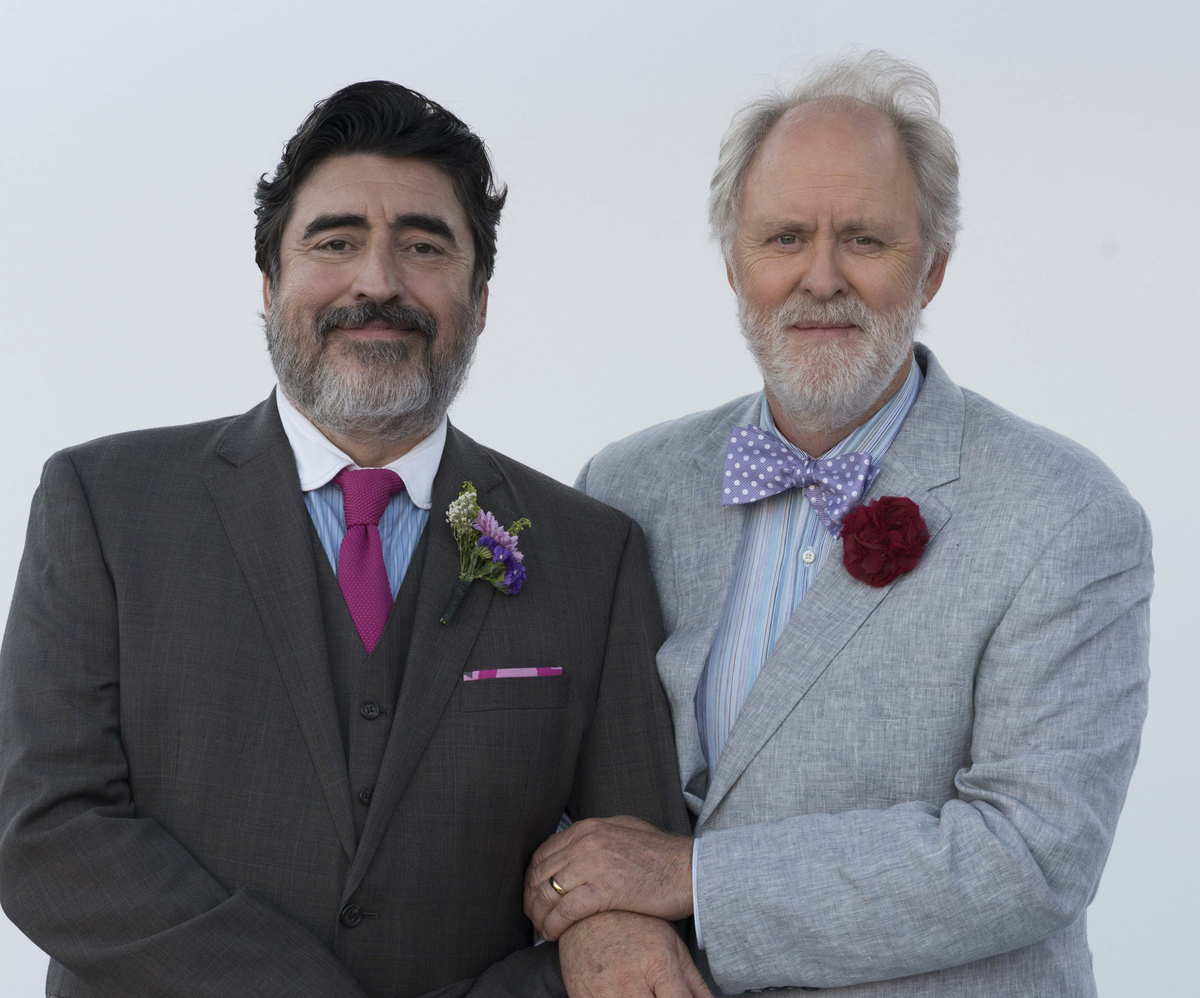 Sony Pictures ClassicsIra Sachs proved himself an adept storyteller with the elusive “Forty Shades of Blue” and the grim “Keep the Lights On,” but it’s “Love is Strange” that gives us the most delicate love story committed to film in years. A brisk 94 minutes, “Love is Strange” trades obligatory political screeds for a subtle look at the tides through which any long-term romance — never mind one between two men — travels. Finally permitted to marry after 39 years together, Ben (John Lithgow) and George (Alfred Molina) are forced to bunk with relatives when the latter loses his job at a Catholic school. It’s through this temporary separation — and their purposeful reunions — that we learn how much these men mean to each other. It may be the most wistful use of a couple’s time apart ever used to exemplify such a rich connection. Concise, subtle and bristling with understated humor, “Love is Strange” reminds us that the oddities of commitment form the bedrock of devotion. It is a masterpiece. — MJ
Sony Pictures ClassicsIra Sachs proved himself an adept storyteller with the elusive “Forty Shades of Blue” and the grim “Keep the Lights On,” but it’s “Love is Strange” that gives us the most delicate love story committed to film in years. A brisk 94 minutes, “Love is Strange” trades obligatory political screeds for a subtle look at the tides through which any long-term romance — never mind one between two men — travels. Finally permitted to marry after 39 years together, Ben (John Lithgow) and George (Alfred Molina) are forced to bunk with relatives when the latter loses his job at a Catholic school. It’s through this temporary separation — and their purposeful reunions — that we learn how much these men mean to each other. It may be the most wistful use of a couple’s time apart ever used to exemplify such a rich connection. Concise, subtle and bristling with understated humor, “Love is Strange” reminds us that the oddities of commitment form the bedrock of devotion. It is a masterpiece. — MJ -
1. “Selma”
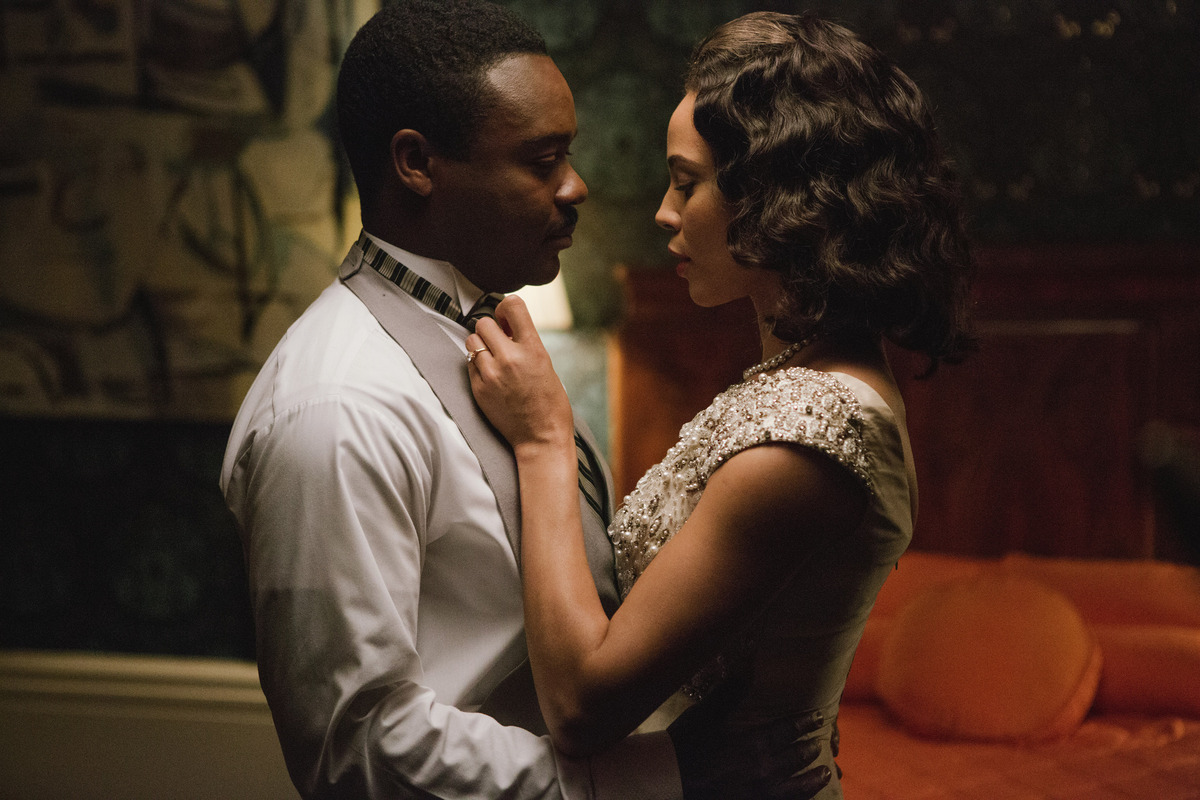 Paramount“Selma” director Ava DuVernay, who gave the film an uncredited and necessary rewrite from top to bottom, takes the story of Dr. Martin Luther King’s battle to get equal voting rights for all citizens in 1965 and turns it into a lived-in portrait of a husband and father (David Oyelowo is excellent as Dr. King), a thrilling dissection of political process and a reminder about the power of optics and strategy when it comes to mounting social change. In its structure, the comparable is “Lincoln,” but the darkened backrooms of Steven Spielberg’s biopic are tossed aside here by DuVernay and cinematographer Bradford Young. Together, they create some of the year’s most indelible and beautiful images, while DuVernay herself exhibits a Spielbergian skill in the way she handles scenes of domestic bliss and strife. (Carmen Ejogo shines as Coretta Scott King.) “Selma” is just so alive. It’s a movie that has time to stop for moments of both levity (Wendell Pierce aka Bunk from “The Wire” singing Harry Belafonte) and horror (the infamous Bloody Sunday attack on peaceful protestors), and understands that both can exist in the same world. If “Selma” were merely an important social document about King and the racial divide in America that still exists today, it would be one of the year’s most important films. That “Selma” also happens to be outrageously good makes it the year’s best. — CR
Paramount“Selma” director Ava DuVernay, who gave the film an uncredited and necessary rewrite from top to bottom, takes the story of Dr. Martin Luther King’s battle to get equal voting rights for all citizens in 1965 and turns it into a lived-in portrait of a husband and father (David Oyelowo is excellent as Dr. King), a thrilling dissection of political process and a reminder about the power of optics and strategy when it comes to mounting social change. In its structure, the comparable is “Lincoln,” but the darkened backrooms of Steven Spielberg’s biopic are tossed aside here by DuVernay and cinematographer Bradford Young. Together, they create some of the year’s most indelible and beautiful images, while DuVernay herself exhibits a Spielbergian skill in the way she handles scenes of domestic bliss and strife. (Carmen Ejogo shines as Coretta Scott King.) “Selma” is just so alive. It’s a movie that has time to stop for moments of both levity (Wendell Pierce aka Bunk from “The Wire” singing Harry Belafonte) and horror (the infamous Bloody Sunday attack on peaceful protestors), and understands that both can exist in the same world. If “Selma” were merely an important social document about King and the racial divide in America that still exists today, it would be one of the year’s most important films. That “Selma” also happens to be outrageously good makes it the year’s best. — CR